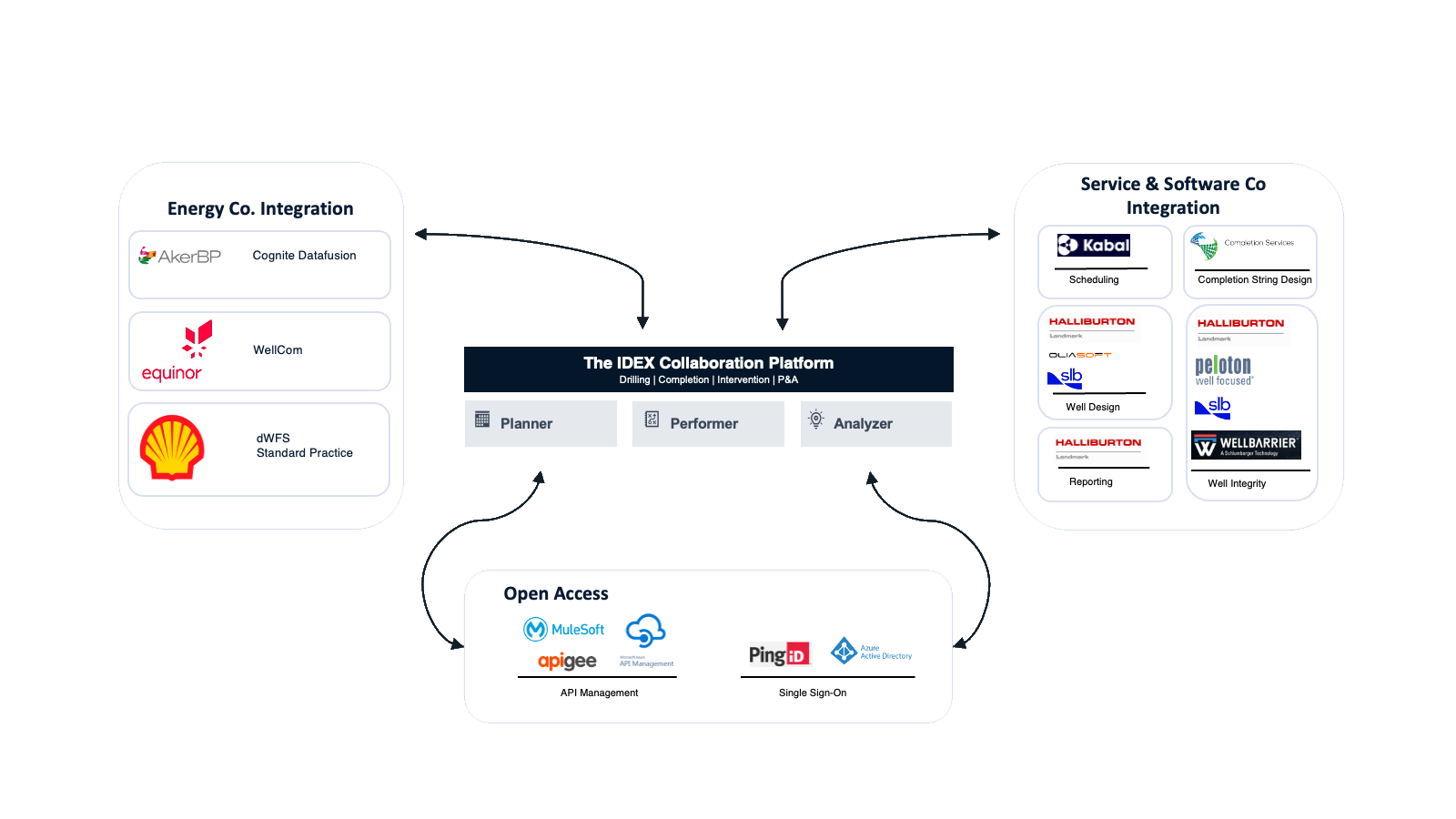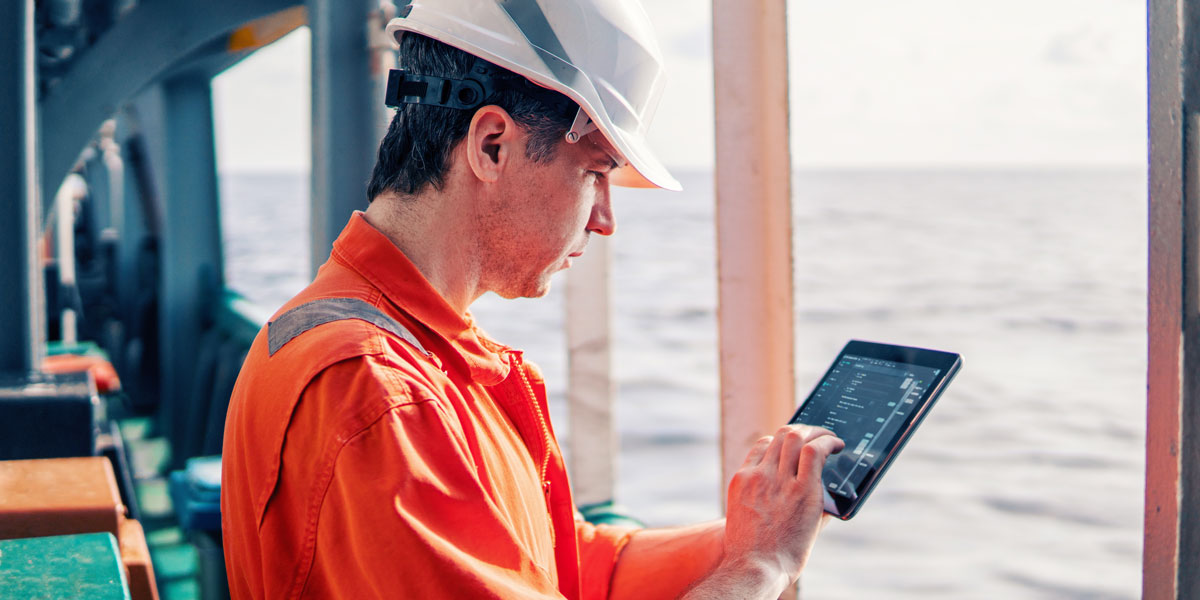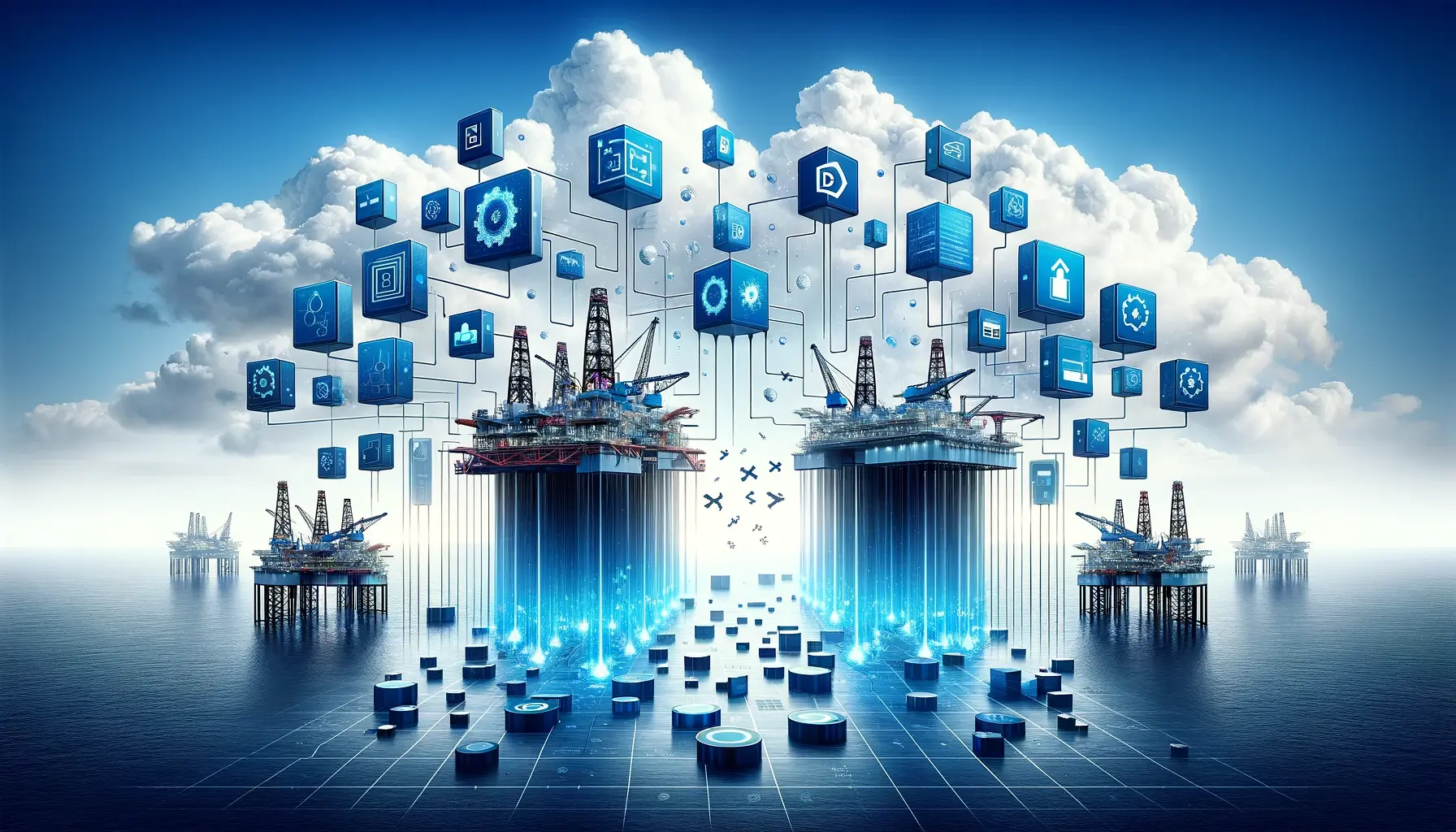Thank Goodness We Decided That Openness Is The Way Forward
Having an end-to-end solution for planning and executing your drilling and well operations is very important, but it is also critical to make sure...
3 min read
Merve Dulger Apr 10, 2024 8:15:00 AM

Wondering how to optimize your approach to the huge amount of data and actors in drilling and well operations? Finding too many options and services for how to interact, store and transfer your project’s data?
This article is here to give you some of the answers.
As we start to digitalize different parts of oil and gas operations, there are some key terms and technologies that you should familiarize yourself with.
In this article we will explore what an open data platform is, and how it can impact the drilling industry's digitalization efforts.
Curious about IDEX ? Watch this short video presentation
The amount of transfer protocols, encryption schemes and data structures available today is staggering. Even more so for specialized purposes. It is not uncommon to find bespoke ways to interface and communicate between software and data stores. There are also plenty of standards for interfacing, often under the description “API” or Application Programming Interface.
An “open platform” in software and cloud solutions commonly refers to how programs and parties interact and interface with a platform through non-proprietary methods.
In short, an open data platform enables the owner of the data to easily use it for purposes and through applications beyond the functionality of the main platform. In turn, the data is not locked to one proprietary system and thus can be moved and utilized freely with solutions from any vendor. This is two-way, applying also for data from other sources into the platform.
“Open” does not mean non-secure or accessible to all. It simply means that way you store and transfer your data is standardized and licence-free.
Let´s look at some real-world examples in the oil and gas industry. This sector is somewhat unique in how such wide range of disciplines and expertise are cooperating in extreme environments. Everything, from budgeting, risk-assessment, scientific analysis of geological/seismic data, other data-analytics, tailored engineering tasks, logistics, weather reports, ICT, and more, must all come together for a common goal.
Today, software is what connects all of this, but traditionally by manual processes; taking data siloed for very specific applications, in-hand, from one place to another, to be compared and evaluated. However, all data could and should serve multiple purposes.
When utilizing a closed system, your data is locked away from other purposes. Suddenly becomes non-trivial to use your wireline logs for anything but the wireline operation. You are suddenly at the mercy of for vendor should you need to use it something like Logistics, budgeting or anything done in other applications or services.
And let us not forget that this is two-way. Should you wish data from other data sources into the platform, you´ll face the same roadblocks, or firewalls.
It goes without saying that this does not belong in a collaborative software platform aiming to streamline processes and bring efficiency to new heights. Scalability, backwards compatibility and future developments becomes a pain, both for the users and the developers.
Imagine an office building where all your files must cut to size before being glued into the filing cabinets. Once in place, they can't be moved without specialized tools and expertise.
What happens if you want to move to a bigger office, or need to share files with someone outside the building? You just wanted a place to store your data and work freely.
This is not what makes data secure, but security is often what you will hear as reasoning for closed platforms. In effect, an open data platform let you choose, and change, the locks and filing cabinets yourself. It is about taking ownership of a major resource.
Through open APIs, like restAPI and protocols like WITSML, everything can be at your fingertips to improve both workflows and accountability. Again, “Open” does not mean non-secure or accessible to all. That is implemented at a different level, the foundation, for any serious solution or service.
Now, advanced analytics utilizing software like PowerBI and emerging AI technologies allow for both greater granularity and wider range in historical analysis. Furthermore, with full control over how your data is stored and processed, you are free to grant specific access to certain parts of a data-set. This is something you might find as premium features in closed-source solutions.
An open data platform is a way of storing and accessing your data using non-proprietary methods. This allows for greater flexibility in how data is utilized and would for many data scientist be the only way to approach a collaborative software platform.
Scalability, backwards compatibility and future developments should be considered from the start and an open platform is proven way of achieve this.
How your data is interfacing with the world is an aspect often overlooked, but should always be considered when finding your solution and system.

Having an end-to-end solution for planning and executing your drilling and well operations is very important, but it is also critical to make sure...

The lifetime of a well is dependent on where you are in the world – from up to 50 years in Saudi Arabia to 10 years in the North Sea. To secure the...

Do you remember the switch from working on documents on a corporately shared folder to using SharePoint? Where you could collaborate with other...